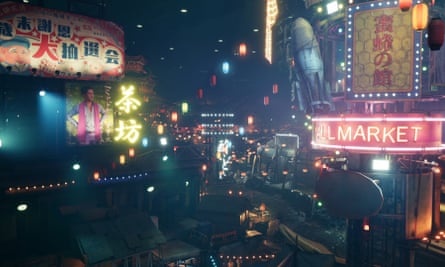Final Fantasy VII
Squaresoft’s environmentalist fable pitches a small group of eco-rebels against the might Shinra Electric Power Company – part energy supplier, part terrifying interplanetary dictatorship. The designers were prescient in their imagining of a multifaceted company equally adept in weapons, genetic engineering and politics, and with its own 24-hour news channel to help with propaganda.
Resident Evil
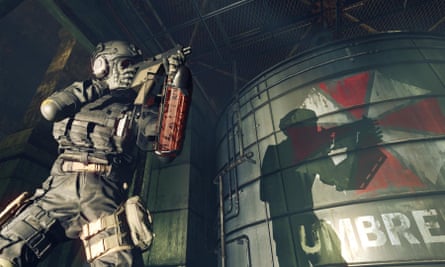
Formed and managed by the Ashford family (surely gaming’s answer to the Sackler dynasty), Umbrella is the pharmaceutical megacorporation responsible for creating the zombifying T-virus then spreading it around the globe. A monstrous metaphor for corporate greed and irresponsibility.
Portal
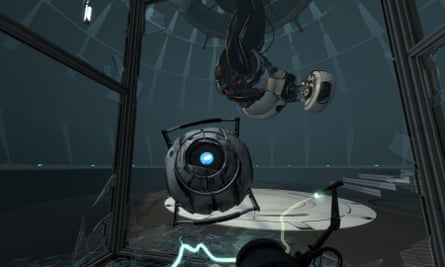
With a chequered background in grotesque human experimentation and shower curtain sales, Aperture Science is the creator of megalomaniacal artificial intelligence GLaDOS, which traps player character Chell in its labyrinthine laboratory. Founder Cave Johnson is the archetypal techbro entrepreneur: brilliant, ruthless and completely nuts.
Bioshock
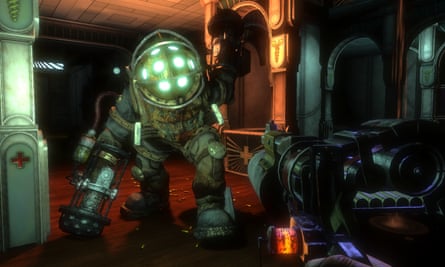
Ken Levine’s acclaimed action thriller centres on fatherly industrialist Andrew Ryan, a combination of Howard Hughes, Walt Disney and Ayn Rand, who builds a corporatised utopia under the ocean. The central message is that we absolutely must not trust companies that want us to harvest powerful genetic serums from children.
Syndicate
One of the great cyberpunk video games of the 1990s, Bullfrog’s real-time strategy has the player joining a leading corporation as a “marketing director” (you literally brainwash people). Your job is to destroy competing companies and recruit useful idiots in order to achieve global domination. Once a vision of a dark and distant future, it now looks like a sort of cosy reality TV show.
Deus Ex
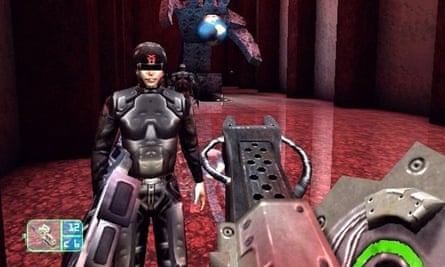
Released in 2000, Warren Spector’s sprawling sci-fi role-playing game (RPG) now feels way too close to home with its depiction of a deadly pandemic being manipulated by myriad corporations for power and profit. Cleverly, all the companies in the game are dark versions of real-life entities: ruthless security firm Tarvos could be Blackwater, the entertainment conglomerate Picus brings Fox to mind, and Tai Yong Medical an unholy combination of Pfizer and Boston Dynamics. Scarily familiar stuff.
after newsletter promotion
Oddworld: Abe’s Oddysee
It’s not hard to spot the subtext of this classic platformer, in which a race of brutal colonisers named Glukkons enslave Oddworld’s indigenous species, destroy its culture and then drain its natural resources through massive industrialisation. The main focus is RuptureFarms, a meat-processing megacompany with a horrible secret. It’s ostensibly a comedy, but the game’s dying landscapes and gloomy, smoke-pumping factories paint a consumerist nightmare.
Assassin’s Creed
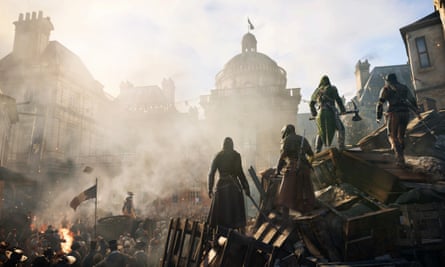
Abstergo Industries, the shadowy conglomerate at the heart of Ubisoft’s time-hopping assassination adventure, is clearly inspired by real-life corporate leviathans such as Reliance Industries and Danaher, which have tendrils in a range of industries – it’s just that this company is a front for an ancient religious military order engaging in a centuries-old battle against a rival assassin clan.
Borderlands
In a universe crammed with evil military-industrial companies determined to colonise and leach planets of their resources, Hyperion reigns supreme. Its CEO Handsome Jack is part-industrialist, part-tyrant, using his company’s plundered resources to construct a murderous dictatorship on the world of Pandora. By employing endless streams of media propaganda he constructs an image of himself as a hero and saviour of the people, thereby garnering popular support. Why does that sound familiar?
Fallout
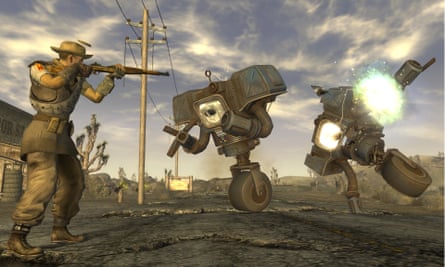
This postapocalyptic role-playing series features that most familiar of sci-fi tropes: the company that starts off with ostensibly good intentions but then can’t help developing a sideline in monstrous and inhuman cruelty. Vault-Tec, like Hyperion, makes excellent use of propaganda to pacify the people – it even has a smiling mascot, Vault Boy, to garner trust. But there’s more to its nuclear bunker complex than meets the eye. Studio Bethesda’s joyous use of 1950s-style adverts, posters and slogans contrasts brilliantly with the devastated wastelands the player explores.

